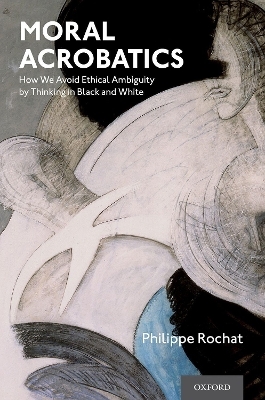
Moral Acrobatics
Oxford University Press Inc (Verlag)
978-0-19-005765-7 (ISBN)
Philippe Rochat is Professor of Psychology at Emory University. He received his PhD from the University of Geneva, and studied infants as a pre-doctoral and post-doctoral fellow at Brown University, the University of Pennsylvania, and Johns Hopkins University. A 2006-2007 John Simon Guggenheim fellow, he has written over one hundred scholarly articles and is the single author of five books, as well as the editor or co-editor of three books.
INTRODUCTION Moral battlefield and the illusion of moral unity
PART 1: FACTS What does it mean to be moral?
1 Human self-reflective curse
2 Double standards
3 Moral acrobats
4 Value creation and moral comfort zones
5 Hitler was a vegetarian!
6 No pure monsters
PART 2: PROCLIVITIES What guides our moral decisions?
7 Moral sphere collapses
8 A heart made of abundance
9 Spherical alliances
10 Exclusivity instinct
11 Love as exclusion
12 Belonging instinct
PART 3: MECHANISMS What shapes our moral decisions?
13 Blind spots and shortcuts
14 Fundamental attribution error
15 Clustering and stereotyping
16 Pervasive fetishism
17 Ingrained essentialism
18 Essentialism and prejudice
19 Group essentialism
20 Self-essentialism
PART 4: DEVELOPMENT What are the origins of our moral decisions?
21 Self-consciousness in development
22 Self-deception in development
23 Lying and deceiving in development
24 Natural roots of moral hypocrisy
25 What about culture and development?
CONCLUSION Human moral frailty
Postscript: Moral acrobatics and human violence
| Erscheinungsdatum | 19.01.2021 |
|---|---|
| Verlagsort | New York |
| Sprache | englisch |
| Maße | 155 x 236 mm |
| Gewicht | 454 g |
| Themenwelt | Geisteswissenschaften ► Philosophie ► Ethik |
| Geisteswissenschaften ► Psychologie ► Allgemeine Psychologie | |
| Geisteswissenschaften ► Psychologie ► Entwicklungspsychologie | |
| Geisteswissenschaften ► Psychologie ► Verhaltenstherapie | |
| ISBN-10 | 0-19-005765-3 / 0190057653 |
| ISBN-13 | 978-0-19-005765-7 / 9780190057657 |
| Zustand | Neuware |
| Informationen gemäß Produktsicherheitsverordnung (GPSR) | |
| Haben Sie eine Frage zum Produkt? |
aus dem Bereich


